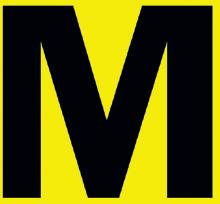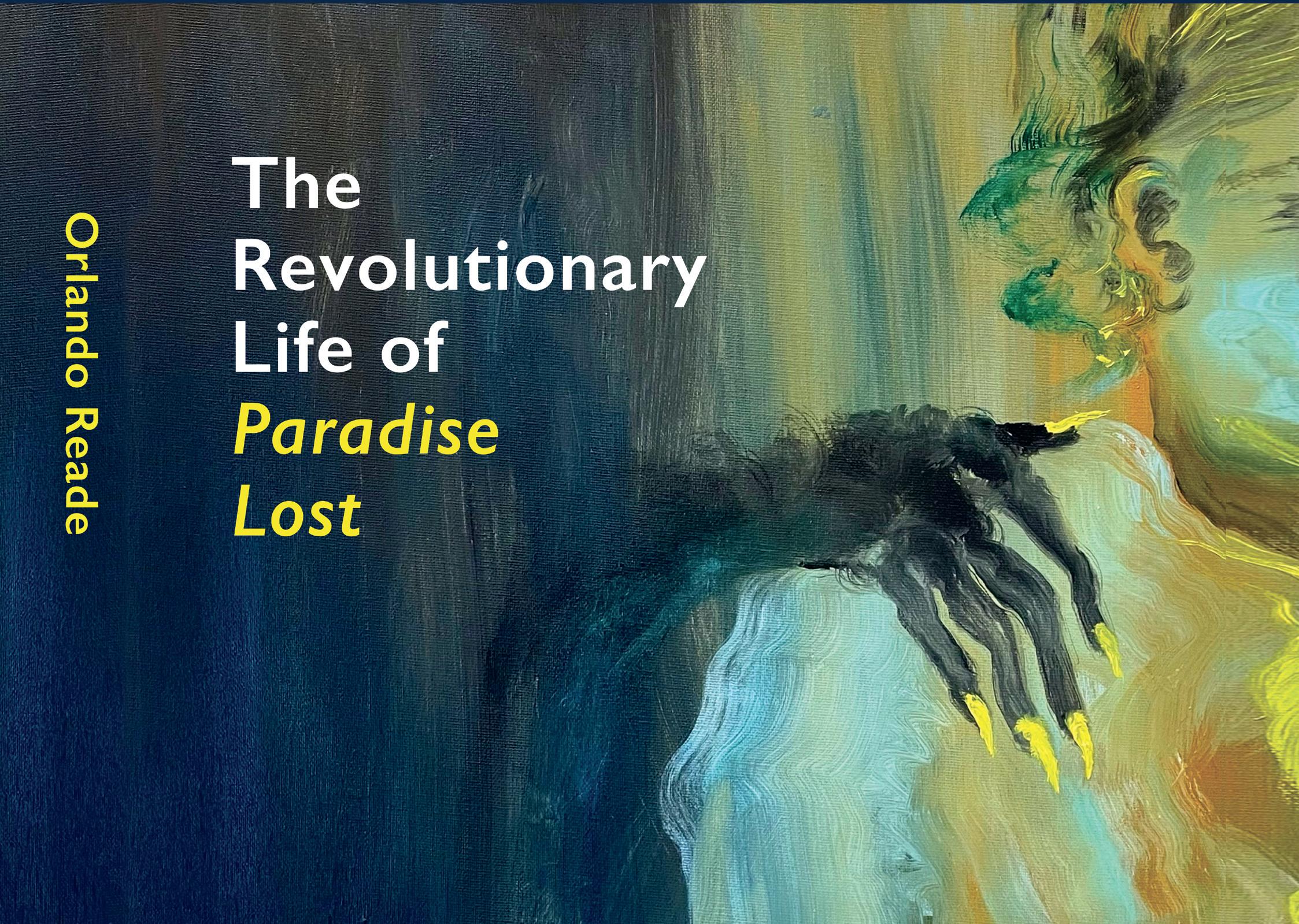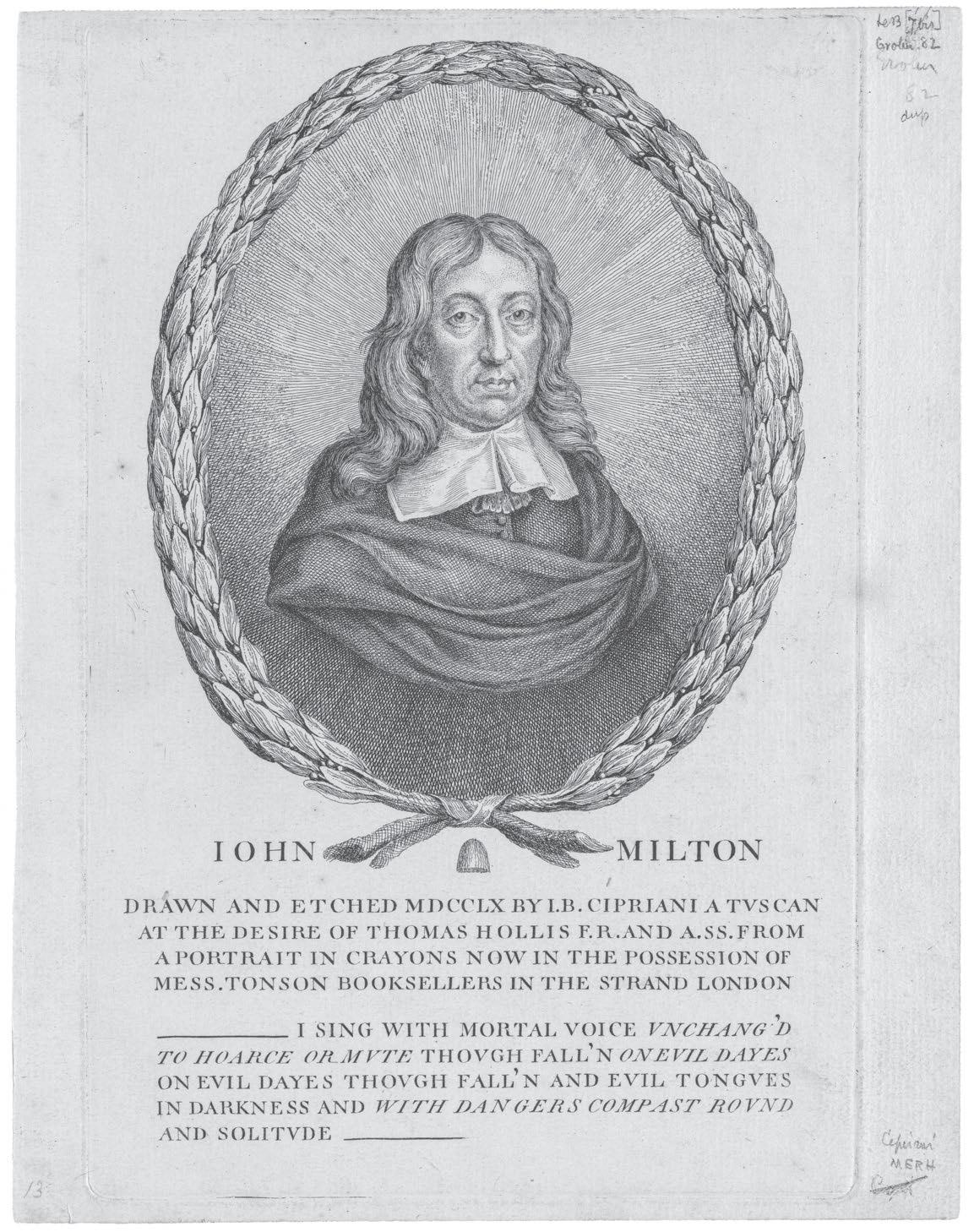














































Jonathan Cape, an imprint of Vintage, is part of the Penguin Random House group of companies
Vintage, Penguin Random House UK, One Embassy Gardens, 8 Viaduct Gardens, London SW11 7BW
penguin.co.uk/vintage
First published by Jonathan Cape in 2024
Copyright © Orlando Reade 2024
Orlando Reade has asserted his right to be identified as the author of this Work in accordance with the Copyright, Designs and Patents Act 1988
Penguin Random House values and supports copyright. Copyright fuels creativity, encourages diverse voices, promotes freedom of expression and supports a vibrant culture. Thank you for purchasing an authorised edition of this book and for respecting intellectual property laws by not reproducing, scanning or distributing any part of it by any means without permission. You are supporting authors and enabling Penguin Random House to continue to publish books for everyone. No part of this book may be used or reproduced in any manner for the purpose of training artificial intelligence technologies or systems. In accordance with Article 4(3) of the DSM Directive 2019/790, Penguin Random House expressly reserves this work from the text and data mining exception.
Typeset in 12/14.75pt Bembo Book MT Pro by Jouve (UK), Milton Keynes
Printed and bound in Great Britain by Clays Ltd, Elcograf S.p.A.
The authorised representative in the EEA is Penguin Random House Ireland, Morrison Chambers, 32 Nassau Street, Dublin d 02 YH 68
A CIP catalogue record for this book is available from the British Library
HB ISB n 9781787334878
TPB ISB n 9781787334885
Penguin Random House is committed to a sustainable future for our business, our readers and our planet. This book is made from Forest Stewardship Council® certified paper.
It is exactly because it is dark that it wants to be understood.
Paul Celan, ‘On the Darkness of Poetry’
Everybody talks about Paradise Lost and nobody reads it.
Unknown, late nineteenth century
Two men sit down at a table to talk. They are brothers, both in their early twenties. The younger, Reginald, is sharply dressed. His older brother Malcolm wears a uniform of coarse white cloth with black code printed on it. They have recently joined a new religion, learning a new account of how the world was created, and how one race came to rule over another. They have been changed, and this is visible in the way they hold themselves: with pride and discipline. Reginald had been the one to initiate Malcolm, telling him: ‘I’ll show you how to get out of prison.’1
On this day, Reginald is visiting, hoping perhaps to impress his older brother with newly learnt rhetorical skills, to share news from the movement and the teachings of their leader.2 But Malcolm wants to talk about something else. In the prison library, he has discovered a book that appears no less than prophetic. It’s a work of literature by one of the most famous authors in Western history: a title that would intimidate most readers. Not this one. Malcolm is a man of exceptional mental energy. He lays out his theory in the visiting room in front of his impressed, uncertain brother. He must know that what he is about to say runs against the received wisdom of his time. Malcolm tells Reginald that this book, written three centuries ago, confirms what they have been taught: America is governed by the Devil.
Two decades later, Malcolm X recalled that moment. It is described in The Autobiography of Malcolm X, published in 1965, shortly after his assassination. He read John Milton’s Paradise Lost at a time when he hadn’t yet exchanged his ‘slave name’ for an X, and his role as the most controversial Black leader in America was still in the distant future. Paradise Lost provided a surprising illumination, confirming what he had
learnt about white supremacy from Elijah Muhammad, leader of the Nation of Islam, the unorthodox Muslim sect sect that Malcolm and his brother had recently joined.3 In his Autobiography, Malcolm remembers telling Reginald that ‘Milton and Mr Elijah Muhammad were actually saying the same thing’.4 If it seems like an astonishing interpretation of a Christian poem written three centuries earlier, that it spoke to the radical needs of the present, Malcolm wasn’t alone.
Paradise Lost, first published in 1667, might be the most influential poem in English. Its subject is the Fall of Adam and Eve, but not as you read about it in the Bible. Paradise Lost is modelled on the epic poems of ancient Greece and Rome. Homer’s Iliad, Odyssey, and Virgil’s Aeneid are stories of heroes and gods, catastrophic wars, harrowing journeys, tragic seductions, and the founding of great empires. Paradise Lost is about the founding of the human race by God, and it also describes what happened before the creation of the world, when one angel leads an uprising in Heaven against God’s authority. After the uprising is defeated, and the rebel angels fall down to Hell, they debate what to do. Their leader volunteers to travel up to the world that God has just created, intending to ruin it by tempting the new humans to disobey their Creator. We then see the fatal consequences of that decision.
Paradise Lost is not only a work of art. It is also an important political document. Like Thomas Hobbes, John Locke, and Jean-Jacques Rousseau – the most influential political philosophers of the seventeenth and eighteenth centuries – Milton offers an account of human origins to make a political argument. The poem explains how an infinitely just and loving God could have created a world full of sin, suffering, and death. To do so, it argues that God gave humans free will so they could choose to obey or disobey him. This is not only a point of theology: freedom is the natural condition of humanity, and the fundamental value on which societies should be built. The political vision of Paradise Lost went on to influence readers embedded in revolutionary struggles in America, France, Haiti, and elsewhere. It became part of the modern imagination, used by readers to understand the best and worst parts of their world. To read Paradise Lost, therefore, is to learn about the modern world, its culture and its
politics. But in order to understand how it came to have this extraordinary career, we need to know how it was written in the ashes of a failed revolution.
If you had walked out of London on a fine day in the early 1660s, before the great plague arrived, passing through Cripple Gate in the ancient city walls, and turning alongside Artillery Gardens, you might have seen a grey-haired man in a cloth coat sitting outside one of the houses. There would have been birdsong in the air, which would have smelt fresh after the reek of the city. If you had come in the early morning, you would have found him inside, in a first-floor room hung with rusty green fabrics, dictating to a young man long, serpentine sentences. The young man would then read the lines back to the older man. He would think a while, then recite the lines again, only this time more compact, like a great cat about to leap. This is the place in which John Milton spent the last years of his life, and where Paradise Lost was revealed to him. He had come up with the idea of writing a poem about the Fall of Adam and Eve twenty years before. But he hadn’t written it then. The reasons behind this delay, and what happened to Milton in the meantime, are essential to understanding his epic.
Milton was born one midwinter morning in 1608 at his family home in Bread Street, London.5 We know little of his mother, Sara, except that she wore glasses. His father, also John, had been disinherited by his Catholic father for reading the Bible in English. He was a self-made man, who worked as a scrivener, or legal clerk, and his prudence made his family financially comfortable. He was an amateur musician and composer, and sent his two sons to St Paul’s School, in the churchyard of the great cathedral where the dean was the poet John Donne, whose sermons drew meanings out of scripture like rabbits from a hat. At the age of twelve, Milton was already showing signs of an exceptional mind, devouring classical literature late into the night. The boys of St Paul’s were trained to read Latin and Greek so well that when they arrived at university, they often felt superior to other students.6 In 1625, aged sixteen, Milton went to Christ’s College, Cambridge, where he first distinguished himself for reasons other than his mind. Within his first year, he was whipped
What in Me is Dark and temporarily expelled. This was unusual for a student and must have been deeply embarrassing.7
At that time, political tensions were rising throughout England. In 1625, King Charles I had married a French Catholic princess, Henrietta Maria, and many feared that he would convert to Catholicism himself. England had become Protestant in the early sixteenth century, under King Henry VIII . During the reign of Elizabeth I (1558–1603), the Church of England had established a cautious middle course between Catholicism and the more extreme forms of Protestantism. What was at stake in the nation’s religion was not just doctrine or ritual, but also political autonomy from the Pope. Then, in the 1630s, the new Archbishop of Canterbury began to introduce reforms that seemed to many suspiciously close to Catholicism. As a young man, Milton conformed to the state religion, his heresies still to come. On graduating, however, he decided not to become a clergyman, a comfortable career for someone with his gifts. Instead, he went back to his parents’ home, where he taught himself mathematics and wrote increasingly ambitious poetry. In 1637, he composed an elegy called ‘Lycidas’, for a Cambridge student who had died in a shipwreck. At the end of the poem, Milton announces his intention to move on to ‘pastures new’. A year later, he embarked on a tour of Italy, something that young men intending to learn modern languages did in pursuit of a diplomatic career. Thanks to his connections, Milton was able to meet some famous writers and thinkers, including the blind scientist Galileo, then living under house arrest for insulting the Pope. While he was there, news arrived that a war had broken out between the English King and the Scottish bishops over issues of religious autonomy. Milton later claimed that he vowed to return home and take up the fight for liberty. In reality, he took his sweet time, lingering in Rome, returning to Florence, and visiting Venice.
By the time Milton arrived back in England, the country was deeply divided. The success of Scottish resistance to the King’s reforms had given courage to England’s radical Protestants. In 1641, Milton joined a controversy between the Church of England bishops and a group of anonymous Presbyterians, who believed the bishops were exercising a tyrannical control over Protestants. The young poet had
been radicalised. He didn’t want England to become like Catholic Italy, where free thinkers like Galileo were oppressed. To be a great poet, he had to be free to hold up bad ideas against good ones, questioning orthodoxies as much as heresies.8 At the same time, he was thinking about a new work of literature. He boasted that his friends said that he was capable of producing ‘something so written to aftertimes, as they should not willingly let it die’ – in other words, a masterpiece that would survive for centuries.9 He came up with almost a hundred potential titles, including ‘Paradise Lost’.10 It was to be a tragedy. (But how to stage a play about naked people?) Only he didn’t write it then. Instead, in a world-historical act of procrastination, Milton put literature to one side and threw himself into politics. He believed that the God who made him a poet was urging his countrymen to rise up. And rise up they did. In late 1641, riots in London drove the King out of the city. The English Civil War began the following August. That same month, Milton had the shock of his life. The poet had received from his father an income that included various debts, on which he received interest. In summer 1642, Milton visited one of his debtors, Richard Powell, at home in Oxfordshire. He returned to London, a month later, with a wife: Powell’s seventeen-year-old daughter Mary. After a month of marriage, she left London to visit her family. She promised to return but didn’t. Milton sent several letters and she didn’t respond. He sent a servant and the servant was rudely turned away. The Civil War made travel difficult, but this did not disguise the fact that he had been abandoned. What had gone wrong? We know little about Mary: Milton’s voluminous writings leave no grain of her voice, her thoughts, her interests. She had a large family, who were Royalist in politics and traditional in religion. It’s little surprise she didn’t take to life in the city with an older, puritanical scholar. One contemporary account says she didn’t like listening to her husband beating his students – a detail that shivers on the page.11 It’s extraordinary that anyone imagined the marriage would work, but economic necessity sometimes produces romantic illusions. For his part, Milton must have been naive. After so short a period in the paradise of marriage, he had been cast out. How he reacted would make him notorious.
Less than a year after Mary left, Milton published a substantial new treatise. He had turned his experience of marriage into a campaign. The treatise, entitled The Doctrine and Discipline of Divorce, argued for reforming English divorce law. Even though Henry VIII had made England Protestant in order to annul a childless marriage, divorce was unobtainable for all but the wealthiest and most powerful people. But the 1640s was a time of radical change, and Milton set his mind to it. The problem was that he had to go not only against the common law but against the very words of Jesus, who had condemned divorce: ‘whosoever shall put away his wife, saving for the cause of fornication, causeth her to commit adultery: and whosoever shall marry her that is divorced committeth adultery’ (Matthew 5:32). Milton argued that something else was more fundamental to Christianity than even Jesus’s words. Scripture, he said, should be interpreted according to the most important commandment: to love (Romans 13:8). Marriage should be about love, two souls linked in the delight of conversation, rather than simply sexual reproduction. Being confined in an incompatible marriage, Milton said, was like being ‘a living soule bound to a dead corpse’. With this, he entered the limelight – and for all the wrong reasons.
During the English Civil War, people started challenging religious authority, demanding their own say in how to worship and what to believe. It wasn’t only Royalists who were threatened by this. The increasingly conservative Presbyterian faction in Parliament viciously attacked religious radicals, and this now included Milton. His enemies called him a libertine, a divorcer, and a wife-beater. He was summoned before Parliament to answer for his views, and once again experience led to a piece of radical political thinking. He wrote a pamphlet called Areopagitica (1644) attacking censorship and defending the freedom of expression. ‘A good book’, Milton writes, ‘is the precious life-blood of a master-spirit.’12 Bad books and wrong ideas are also necessary, for how do we know what to believe unless we can test our ideas? Untested virtue is not virtue at all but ‘an excrementall whitenesse’.13 With Mary’s departure, Milton had come to believe that experience was better than untested innocence, a belief that would later structure his epic.
By the summer of 1645, the King’s cause was waning, and this had an unexpected impact on Milton’s life. One day he was visiting elderly relatives, and ‘on a sudden he was surprised to see one whom he thought to have never seen more, making Submission and begging Pardon on her Knees before him’.14 Mary had returned. It’s not clear how this was stage-managed, nor whether Milton had done anything to bring it about, though he seems to have been putting financial pressure on the Powell family.15 Whatever led Mary to seek him out, they lived as man and wife from then on. Less than a year later, she gave birth to a daughter, Anne. In the summer of 1646, the King surrendered and, for the next two years, the two sides tried to negotiate a new political settlement. The Presbyterians wanted peace, while the Independents – a faction that included Milton and the ruthless army general, Oliver Cromwell – were pushing for more extensive reforms. Then there were the radicals in the army, known as the Levellers, who called for votes for all men. This came to a head in the Putney Debates of 1647, where the army debated these issues. Ultimately, the Levellers were sidelined by the leaders of the army, but the debates led to a crucial turn away from negotiation. There was now talk of a future without a king. Some said the land could be cleansed only by his death. Finally, the King was put on trial. On 30 January 1649, he was led to the scaffold. The stroke that cleaved his head from his neck was met with a groan from the crowd.16 A week later, England was declared a Republic.
Soon after, Milton was given a role in the new government as Secretary of Foreign Tongues, writing and translating diplomatic correspondence. He also became a member of the Council of State, the executive body governing England, and was tasked with deciding which books should be censored. He put his beliefs into practice, permitting the first English translation of the Qur’an, among other non-Christian books. Most importantly, the new government asked him to defend the execution of the King and champion the cause of democracy. He wrote an important treatise, The Tenure of Kings and Magistrates, which argued that it was just to depose a king who had become a tyrant. Milton had become a propagandist for the new regime, and this spawned many enemies. Royalist writers poured
What in Me is Dark
torrents of ink into efforts to spoil his reputation, calling him a monster, a sodomite, a prostitute, and a mushroom. When he went blind, in 1652, they said it was a divine punishment. This period also saw another kind of loss. His wife, Mary, died in childbirth and, six weeks later, his son, John, died too. The poet was now the widowed father of three daughters: Anne, Mary, and Deborah. Several years later he married again, and happily, but his wife, Katherine, died after they had had only two years together. In sonnets written in the wake of these events, he describes a world made dark by loss.17
Milton’s commitment was undiminished, even as the Republic ran into difficulties. Parliament needed to call an election, but they feared that the electorate would vote for candidates who would call for the restoration of the monarchy. They had come to a standstill. On 20 April 1653, Oliver Cromwell interrupted a debate. He stepped into the middle aisle of the chamber, crying out: ‘You are no Parliament, I say you are no Parliament; I will put an end to your Sitting.’18 He called a troop of musketeers into the chamber: they cleared out the MP s and locked the doors. After that, Cromwell briefly considered taking the crown: England still lacked the stability that monarchy offered. But his conscience – and his outraged army comrades – prevented him. Cromwell hand-picked a new Parliament, composed mostly of Independents, army officers, and Fifth Monarchists, religious radicals who believed that Christ’s return was imminent. This belief didn’t make them easy to negotiate with, and within a year Cromwell dissolved Parliament a second time, establishing himself as Lord Protector, the sole leader of England, Scotland, and Wales. This was far from the republic that Milton wanted, but he maintained that it was ‘the rule of the man most fit to rule’.19 At least Cromwell wanted to ensure religious tolerance for all Protestants. To Milton, he was better than the alternatives.
The Protectorate lasted until shortly after Cromwell’s death in 1658. On his deathbed, he nominated his eldest son, Richard, as his successor. Richard was not the man most fit to rule. He failed to reconcile the various factions and England’s future was once again uncertain. Around that time, a friend suggested to Milton that he write a history of the English Civil War. Milton replied: ‘What we need is not one who can compile a history of our troubles but one who can happily end them.’20

John Milton as a political saint. Engraving by Giovanni Battista Cipriani (1760), made for the radical agitator Thomas Hollis, and based on an image made during the poet’s lifetime.
In April 1660, Prince Charles, the dead King’s son, was invited to restore the monarchy. That same month, Milton wrote a pamphlet, The readie and easie way to establish a free Commonwealth, desperately trying to convince his nation not to restore the monarchy, but it was too late. Shortly after that, he went into hiding.
King Charles II returned to England in May 1660 to almost universal jubilation, with church bells ringing throughout the land, bonfires burning, and fountains running with wine. He officially forgave those
who fought against his father, but he made an exception for the regicides: the men who had signed the King’s death warrant. Those regicides who were still alive were hunted down, arrested, and brought to trial. Those who had died were exhumed, and their remains were hanged, drawn, and quartered. Parliament decided to punish twenty men who were not regicides, and someone proposed Milton. Eventually, however, his friends in Parliament prevailed. (Touchingly, one of them was the Royalist poet William Davenant, whose life Milton had saved under the previous regime.) Milton avoided punishment but he continued to fear retribution. Two of his books were burnt by order of the state. He was imprisoned and released only after paying a large fine. It was then, as a blind man, twice widowed, in a state where the fight for liberty had been lost, that he returned to his abandoned epic. In his final years, Milton lived a mostly quiet life in London. He was goaded in print by vengeful Royalists but unable to respond and thereby, in doing so, draw dangerous attention to himself. This meant he had to focus on writings that would find readers beyond his own political camp. Most importantly, it allowed time to write poetry. In Paradise Lost, Milton describes composing the poem thanks to ‘nightly visitation’ by his muse.21 He would hold the poem in his mind until morning, when one of the young men who served as his secretaries was there to write it down. Milton referred to this, rather disgustingly, as being ‘milked’. Composing this ten-thousand-word epic poem while being unable to see it on the page was an extraordinary feat of mental gymnastics and it came at a significant personal cost. In those years, Milton forced his daughters, Mary and Deborah, to read to him (the eldest, Anne, was excused because of a speech impediment).22 They apparently read to him in languages including Hebrew, Syriac, Greek, Latin, Italian, Spanish, and French, which they could pronounce but not understand.23 This was the invisible labour behind Paradise Lost, and eventually, it became intolerable for them. In 1662, Milton’s daughters got their revenge. They conspired with a maidservant to sell their blind father’s books.24 When he found out, their relationship began to disintegrate. Soon after, he married for a third time, and his daughters didn’t like their new stepmother. Eventually, he arranged for them to be sent away – to work for other
Introduction 11
families. While Milton was finishing his great epic, his family was falling apart.
When the plague came to London, in 1665, Milton rented a cottage in the village of Chalfont St Giles. That summer, he finished Paradise Lost. It was first published in 1667, and then again in July 1674, reorganised from ten books to twelve. This would be its final form, for Milton died that November and was buried in the church of St Giles. After his death, Paradise Lost did become the enduring monument that the young poet had hoped to create, although its afterlife was wildly different from anything he could have expected. What was it about the poem that made this possible?
In the opening lines of Paradise Lost, the poet implores his muse to guide his writing. Milton believed that Paradise Lost was inspired by a divine spirit. But if repeating Christian truths were all this poem did, it would hardly have had such a deep influence among so many nonChristian readers. There is in Paradise Lost something that has granted it a long afterlife in the modern world. The end of the invocation hints at it. Milton says to his muse:
What in me is dark Illumine, what is low raise and support, That to the height of this great argument I may assert the eternal providence And justify the ways of God to men. (I:22–6)
Consider the phrase: ‘What in me is dark / Illumine’. The way it’s split across two lines creates a moment of suspense. We might wonder: what in him is dark? This could refer to the poet’s capacity for sin. Milton could be asking his muse to expose his sins and, in doing so, redeem them. But darkness in this poem isn’t necessarily a bad thing. Later in Paradise Lost, Milton refers to God’s ‘Dark Materials’ (II :916). This inner darkness could also be divine.
In the English Renaissance, some works of literature were referred to as dark writing. Edmund Spenser said that his epic poem, The Faerie Queene (1590), made use of a ‘dark conceite’.25 He was talking about allegory, a kind of fiction that signifies some other meaning,
often a spiritual or political one. Allegories were written darkly, requiring the reader to think carefully about what they might signify. Dark writing could also refer more generally to the ambiguities of poetic language. In his famous Defense of Poesy (1595), Philip Sidney wrote ‘there are many mysteries contained in poetry, which of purpose were written darkly, lest by profane wits it should be abused’.26 This intentionally obscure way of writing means that superficial readers (‘profane wits’) will not be able to gain easy access to its truth. It could also be prophetic: someone uttering dark words would not necessarily know what they had said, and it would remain for others to decipher them. Because Paradise Lost was divinely inspired, it gave voice to something that the poet wasn’t fully in control of, which might only be understood by his readers. Its poetic darkness would prove crucial to its enduring life.
Paradise Lost went out into a world that was undergoing a transformation. The culture of humanism – reading classical texts to discover knowledge – gradually gave way to a culture of experimentation and observation. Across Europe, scientists were trying to defend knowledge from the wars of religion of the sixteenth and early-seventeenth centuries. The findings of Copernicus, Galileo, and Kepler reshaped visions of the universe. Founded in 1660, the Royal Society of London for Improving Natural Knowledge promoted a newly codified method of producing scientific truths, and the discoveries of Boyle, Hooke, and Newton transformed the understanding of matter. There was an increasing confidence that nature could be manipulated, made more plentiful and accommodating. Rejecting an unchanging, traditional society, philosophers – during what we now know as the Enlightenment – insisted that society could be improved in infinite ways. With its emphasis on freedom, political revolution, and scientific discovery, Paradise Lost was well suited to the Enlightenment but it also spoke to the other side of the times.
Milton’s epic followed the fortunes of empire. In 1600, England was still a relative backwater on the edge of the Continent, its language rarely spoken outside its borders. It had colonised Ireland, Wales, and small patches of North America, but little more. Then, during the seventeenth century, it gained territory across the Caribbean, most
importantly the sugar colonies of Barbados and Jamaica, and began to claim a larger share in global trade. The Royal Africa Company, founded in 1660, secured England’s share in the Atlantic slave trade, and the East India Company established lucrative monopolies on trade with Asia. By the time of Milton’s death, England was a superpower to rival the gold-rich empires of Spain and Portugal. Epic had been important to other empires, so England had to have its own epic poet.27 It couldn’t be Shakespeare, who never wrote an epic, and no one else in the seventeenth century had written anything close to Paradise Lost, so it had to be the more controversial Milton.28 His poem may not have been openly imperialistic, but its influence was carried by the ships taking England’s language, religion, and politics across the globe.
In the eighteenth century, Paradise Lost became a classic. Many of the most influential writers wrestled with its influence. This was a bit like Peter Pan trying to stick down his own shadow: Milton had done so much to define success that a writer had to be like him and not like him at the same time. The critic Joseph Addison said: ‘Our language sunk under him’, as if Milton were a monster dragged on to a boat that proved too small to bear it.29 Towards the end of the century, however, something more extraordinary happened. Paradise Lost was taken up by people participating in revolutions in America and France. If at first those revolutions appeared to be faithful to the aims of the English Republic, they soon went further, demanding rights for the working classes, for women, for slaves. As those revolutions changed their societies, Paradise Lost mutated. It mirrored the new contradictions of the times. Women read Milton as both an antagonist and a spur to gender equality. Scientists thought about his account of Creation as they came up with groundbreaking theories. Satanist priests fell under the sway of a Christian poem.
Some modern critics claimed that epic poetry had become impossible as the stability of modern nation states made the heroic action that epic depended on increasingly outmoded.30 But countless modern readers, especially those living in proximity to revolutionary change, used Milton’s poem to recognise something epic in their own lives. And in return, they gave it new life.
For a long time, I was afraid of Milton. As an undergraduate, I had to read Paradise Lost and write an essay about it in the space of a week. I left it too late, which meant I had to read the entire poem – all 10,565 lines of it – in a single day. I should say that my eyes passed over it because I hardly read it at all. I was left only with the impression that the ending was the most beautiful piece of writing I had ever read. I remained intrigued by Milton and his part in the revolutionary Civil War, and some years later, I decided to write a chapter of my PhD about him. But I soon found that I couldn’t bring myself to take on Paradise Lost and the mountain of criticism devoted to it. Milton, with his inexhaustible lust for learning, had defeated me.
Then, in 2018, I was teaching in a prison in New Jersey. It was a class for incarcerated students working towards their BA . I was there as a volunteer, while in the penultimate year of my PhD. In the first session, I gave the students one of Shakespeare’s sonnets. When we came to discuss it, I mentioned metre, the system of rhythm used in traditional English poetry. Several students said they wanted to learn more about metre. I wasn’t sure why: maybe they believed it would be necessary to get a good grade, or maybe they were just curious about this unfamiliar system of rhythm. The next week, I brought in some examples of metrical poetry, including the opening lines of Paradise Lost:
Of man’s first disobedience, and the fruit
Of that forbidden tree, whose mortal taste
Brought death into the world, and all our woe (I:1–3)
I wrote the first two lines on the blackboard and explained how its metre, known as iambic pentameter, alternates between unstressed and stressed syllables, with five stresses (or beats) in each line. I wrote a mark above each one:
/ / / / /
Of man’s first dis-o-be-dience, and the fruit / / / / /
Of that for-bi-dden tree, whose mor-tal taste
I asked the class to read it aloud with me, and together we emphasised the stressed syllables like a tuneless choir. I had no idea what
they might make of this rather abstract exercise, but as soon as I had finished explaining it, a student – I will call him Mark – put his hand up. The first line is disobedient, he said simply. I asked him to explain. To follow the metre, Mark continued, the reader must choose whether to confine ‘dis-o-be-dience’ to four syllables or else say ‘diso-be-di-ence ’ and in doing so disrupt the order of the line.
It was a brilliant insight. Freedom is not only a theme of Paradise Lost, Milton tells us, it is embedded in the very experience of reading it. In a ‘Note on the Verse’, which acts as a brief introduction to Paradise Lost, he explains why he decided to write in unrhymed iambic pentameter. He says rhyme is a kind of ‘bondage’, a trivial sing-song effect that restricts what the poet can say. Besides, Milton says, many of the best poems – the epics of Homer and Virgil – didn’t rhyme. Because of this, his decision to write unrhyming iambic pentameter, also known as ‘blank verse’, was restoring an ‘ancient liberty’ to poetry.31 The fact that Mark had seen this, in the smallest fragment of Paradise Lost, made me think about Milton’s poem in a new way.
It was only when I had to teach Paradise Lost that I read it properly. It was an undergraduate seminar at Princeton and the students were not only English majors, but also students majoring in computer science, economics, and maths. Now that I had to help others to understand it, I found the poem easier to understand. I was struck by the pleasure my students received from Paradise Lost, and I found it easier to enjoy myself. That year, Milton’s visions of Hell, Heaven, and Eden began to invade my imagination. When the pandemic broke out, I had moved back to England, having finished my PhD. The one temporary job I had lined up quickly evaporated, so I was unemployed. One thing I knew how to do was teach Paradise Lost. Thinking of how much my students had seemed to enjoy it, I decided to run an online seminar – which I advertised to friends and acquaintances. Enough people wanted to take it that I ended up teaching Paradise Lost five days per week, for the next three months. By the time the seminar had finished, the poem had suffused my whole world. I noticed its influence everywhere: in the novels I was reading and the films I watched. I found out about Malcolm X’s interpretation and learnt how Milton had influenced the American
Founding Fathers. I realised that Mark’s brilliant response to it wasn’t an anomaly. This poem could still speak vividly to contemporary readers.
Because of his role as a champion of Parliament in the English Civil War, sometimes claimed to be the first modern revolution, Milton has been a cornerstone of the Western political tradition, and his epic tells a story about the crises and contradictions of that tradition. One book could never hope to follow the spores of its influence everywhere in the world that it has migrated. Instead, I focus on twelve readers (or groups of readers):
Thomas Jefferson (1743–1826): polymath, lawyer, politician, and second President of the USA
William Wordsworth (1770–1850) and Dorothy Wordsworth (1771–1855): siblings, poets, and leading exponents of the English Romantic movement
Baron Vastey (1781?–1820): anti-colonial philosopher and secretary to Henri Christophe, the first King of post-revolutionary Haiti
George Eliot (1819–80): Victorian novelist, translator, and critic
James Redpath (1833–91): radical abolitionist, journalist, and proprietor of the Weekly Anglo-African
The Mistick Krewe of Comus (founded 1856): a secret carnival society in New Orleans
Virginia Woolf (1882–1941): modernist novelist and critic
Hannah Arendt (1906–75): German philosopher, Jewish refugee activist, and Cold War liberal
Malcolm X (1925–65): American Muslim minister and Black nationalist leader
C. L. R. James (1901–89): Trinidad-born historian and Trotskyist agitator
Jordan Peterson (1962–): Canadian psychologist, professor, and internet celebrity
The students in my class at a New Jersey prison, 2018–19
Each chapter looks at one of these encounters, describing how Paradise Lost illuminated their world. We also follow the poem’s story, exploring some of its most important, beautiful, and disturbing passages, so that someone who hasn’t read Paradise Lost can understand.
The story begins with the American, French, and Haitian revolutions, then goes on to consider other political transformations, including the American Civil War, the women’s movement, and the Cold War. It also considers revolutions that were primarily cultural, including Romantic poetry, New Orleans’ Mardi Gras, and modernism. Some of the readers are radicals but others are conservative, liberal, and ambivalent. Paradise Lost encourages some of them to revolutionary acts, but it discourages others. These encounters are as varied as the readers themselves, but one thing is consistent: they use Milton’s epic to grasp something about their world. In telling their stories, this book describes how literature has played a part in the long struggle born of the belief that the fundamental human condition is one of freedom.